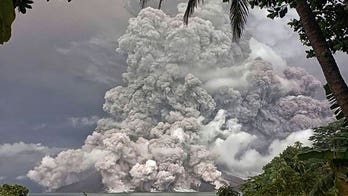NASA astronaut Frank Rubio, who holds the record for the longest spaceflight for a U.S. astronaut, shares insights into the challenges of extended space missions. He emphasizes the crucial role of exercise and nutritional balance in maintaining the health and well-being of astronauts during prolonged periods of zero gravity.
## Article:

NASA Astronaut Frank Rubio: Extended Space Missions and the Importance of Health
### Extended Missions: A Mixed Bag
According to Rubio, extended space missions present a unique set of circumstances that can be both rewarding and challenging. While astronauts get to experience extraordinary views and unparalleled scientific opportunities, they also face extended periods away from loved ones and Earth-bound activities.

NASA Astronaut Frank Rubio: Extended Space Missions and the Importance of Health
### Emotional and Psychological Impacts
Rubio acknowledges the emotional and psychological toll that extended missions can take on astronauts. Prolonged isolation, coupled with the absence of familiar surroundings and routines, can test the limits of their mental resilience. However, the positive aspects of the mission often outweigh these difficulties, motivating astronauts to embrace the unique opportunity.

NASA Astronaut Frank Rubio: Extended Space Missions and the Importance of Health
### Trust in NASA's Team
Rubio emphasizes the importance of trust in NASA's team of experts, who meticulously analyze and address potential risks to ensure the safety of astronauts. This unwavering belief in the mission's safety protocols provides a sense of comfort and confidence amidst the challenges of extended stays in space.

NASA Astronaut Frank Rubio: Extended Space Missions and the Importance of Health
### Exercise Regimen: A Daily Necessity
Rubio highlights the critical role of exercise on extended space missions. The absence of gravity leads to rapid deconditioning of the human body, making it imperative to engage in daily physical training. Astronauts typically devote around two hours each day to resistance and cardiovascular exercises, even on missions initially planned as short as eight days.

NASA Astronaut Frank Rubio: Extended Space Missions and the Importance of Health
### Importance of Studying Exercise in Space
Frank Rubio was the first astronaut to participate in a study investigating the effects of limited gym equipment on the human body during spaceflight. This research is crucial for developing exercise protocols for future crewed missions to the moon and Mars, where spacecraft space is limited.
### The Standard Measures Study
Rubio's participation in the Standard Measures study laid the groundwork for understanding the impact of spaceflight on the human body. This study examines various aspects of astronaut health, including bone density loss, muscle atrophy, and psychological well-being.
### Nutrition and Sleep: Essential Components
In addition to exercise, Rubio emphasizes the significance of proper nutrition and sufficient sleep for maintaining astronaut health during extended missions. Optimal nutrition provides astronauts with the necessary energy and nutrients, while adequate sleep is crucial for cognitive function and overall well-being.
### Psychological Training: Building a Resilient Team
Psychological training is an integral part of preparing astronauts for the challenges of space missions. It plays a vital role in promoting a healthy team










